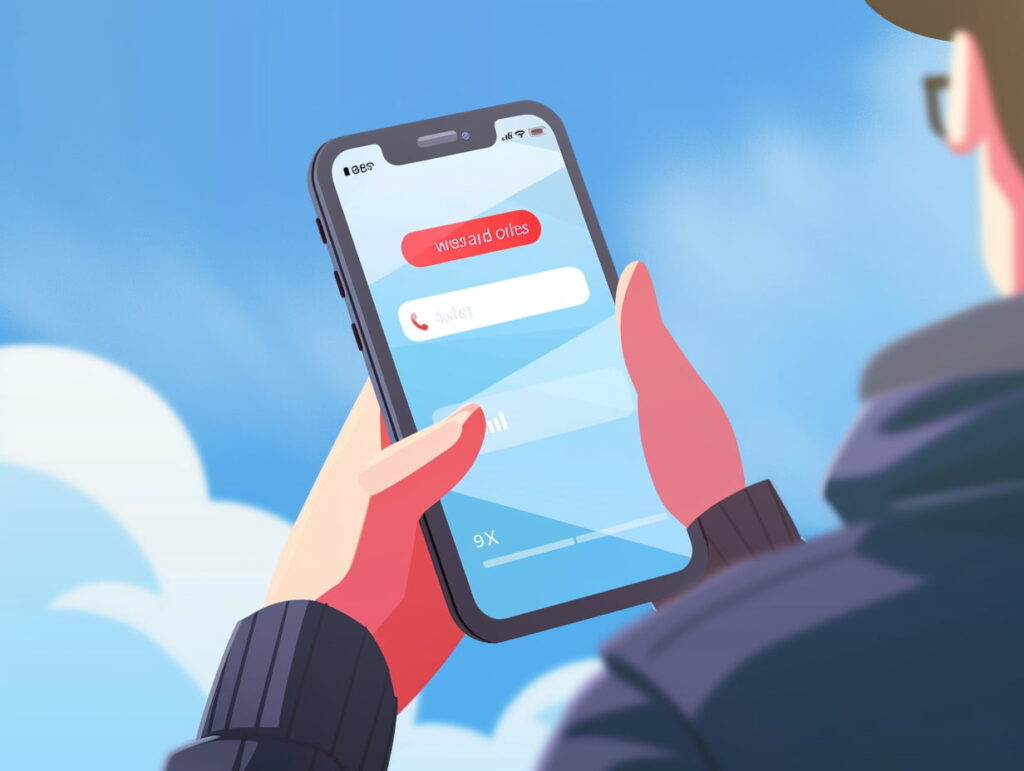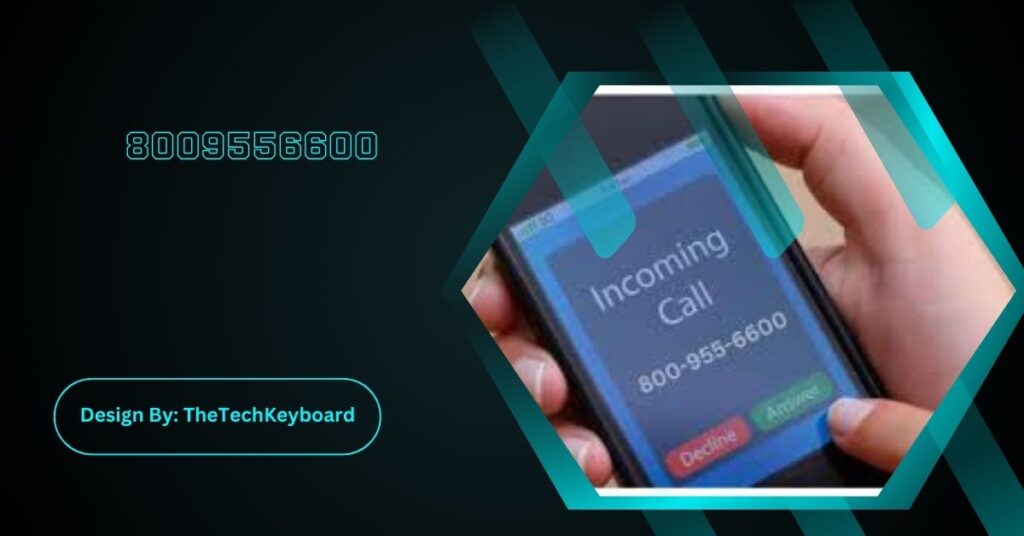The number 8009556600 is often linked to Capital One debt collections. Verify the caller’s identity, request debt validation, and use legal protections like FDCPA to stop harassment and protect your financial rights.
Receiving repeated calls from 8009556600 can be stressful and frustrating. Many people wonder if this number is a scam, a legitimate debt collector, or a creditor trying to reach them. If you’re dealing with these calls, it’s essential to understand who is behind them, how to verify the debt, and most importantly, how to stop the harassment legally and effectively.
This detailed guide will help you identify the caller, protect your rights, and take action so you can regain peace of mind.
Who Is Calling From 8009556600?
The number 8009556600 is most commonly associated with Capital One or its authorized debt collection agency, Northland Group.
Credit card companies often hire third party collectors to recover unpaid balances. When you miss payments, your account may be sold or assigned to a collection agency, which then attempts to contact you often repeatedly.
- Important: Not every call from this number is legitimate. Scammers sometimes spoof numbers to trick people into sharing sensitive financial information.
Possible callers include:
- Capital One Collections Department
- Northland Group, a third party debt collector
- Scammers impersonating Capital One or a collection agency
Is 8009556600 a Scam or Legitimate Debt Collector?

Not all calls from 8009556600 are fraudulent. In many cases, it is a real attempt to collect a debt. However, scammers often pretend to be debt collectors, so you must verify before paying anything.
Signs it might be a scam:
- The caller refuses to provide written documentation of the debt.
- They demand immediate payment via gift card or wire transfer.
- You feel pressured or threatened, such as with arrest or legal action.
- Caller becomes aggressive when you ask questions or request validation.
How to confirm legitimacy:
- Ask the caller for their full name, company, and mailing address.
- Request a debt validation letter, which they are legally required to provide under the Fair Debt Collection Practices Act (FDCPA).
- Cross check your Capital One statements to see if the account information matches.
- Contact Capital One directly using the phone number on your statement to confirm the collection activity.
Tip: Never share personal or banking information until you confirm the debt is real.
How to Verify the Debt Before Paying?
Verifying the debt protects you from paying fake or inaccurate debts. Here’s how to do it step by step:
1. Request a Debt Validation Letter
Under the FDCPA, debt collectors must send you a written notice within five days of their first contact. This notice should include:
- The amount owed
- The original creditor’s name
- Instructions on how to dispute the debt
If you haven’t received this letter, formally request it in writing.
2. Review Your Records
Compare the information in the validation letter to:
- Past statements from Capital One
- Payment history records
- Your credit report from Equifax, Experian, or TransUnion
If the debt doesn’t match your records, you have the right to dispute it.
3. Send a Debt Dispute Letter
If you believe the debt is incorrect or belongs to someone else:
- Send a debt dispute letter to the collector.
- Include supporting documentation, like proof of payment or identity theft reports.
- Mail it via certified mail with return receipt requested.
The collector must stop collection activity until they provide proof.
Step by Step Guide – How to Stop Calls From 8009556600?
Dealing with constant calls can feel overwhelming. Fortunately, there are legal and practical steps you can take to stop them.
1. Send a Cease and Desist Letter
If you no longer wish to receive calls, send a cease and desist letter to the collection agency.
Here’s a simple template:
Sample Cease and Desist Letter
Date
Your Name
Your Address
Collection Agency Name
Collection Agency Address
Subject: Cease and Desist Request
Dear [Collection Agency],
I am requesting that you cease all communication with me regarding any alleged debt connected to my name and account.
Under the FDCPA, I have the right to request this in writing. Failure to comply will result in a complaint filed with the Consumer Financial Protection Bureau (CFPB) and the Federal Trade Commission (FTC).
Sincerely,
Your Signature
- Note: Even after sending this letter, they may still contact you once to confirm they won’t be contacting you again or to notify you of a lawsuit.
2. Block the Number
Most smartphones allow you to block calls from specific numbers. While this won’t stop the collection efforts, it can reduce stress by preventing constant ringing.
- iPhone: Settings → Phone → Blocked Contacts → Add New
- Android: Phone App → Call History → Block Number
3. Report Harassment
If the collector ignores your cease and desist request or violates FDCPA rules, report them to:
- CFPB (Consumer Financial Protection Bureau): www.consumerfinance.gov
- FTC (Federal Trade Commission): www.ftc.gov
- Your State Attorney General’s Office
4. Negotiate or Settle the Debt
If the debt is legitimate and you can pay, consider negotiating a settlement. Many collectors will agree to accept less than the full balance if paid in a lump sum.
- Tip: Always get the agreement in writing before sending any payment.
5. Work With a Debt Relief Program
Some consumers choose to work with:
- Debt settlement companies
- Credit counseling agencies
- Bankruptcy attorneys
These professionals can help you negotiate or eliminate debt legally.
What to Do If You’re Being Sued by Northland Group
In some cases, ignoring calls can escalate to a lawsuit. If you receive a court summons, take it seriously.
Steps to protect yourself:
- Read the summons carefully note deadlines and court dates.
- File a written answer with the court to avoid an automatic judgment.
- Gather evidence, such as payment records or disputed debt letters.
- Consider hiring a consumer protection attorney to represent you.
- If you can’t afford an attorney, some states offer free legal aid services.
Does 8009556600 Affect Your Credit Score?

Yes, unpaid debts handled by Capital One or Northland Group can appear on your credit report, lowering your score.
How collections affect credit?
- Late payments reported by Capital One negatively impact your score.
- Once the account goes to collections, it can stay on your report for up to 7 years.
- Paying or settling the debt won’t immediately erase it but may improve your score gradually.
What you can do?
- Check your credit report at AnnualCreditReport.com (free once per year).
- Dispute any inaccurate information directly with the credit bureau.
- Request a “pay for delete” agreement before paying the collector, asking them to remove the negative mark.
When to Contact an Attorney?
You should consider speaking to a consumer protection attorney if:
- The collector uses threatening or abusive language.
- You receive multiple calls per day, even after requesting they stop.
- They sue you or threaten legal action.
- You believe the debt doesn’t belong to you.
Many attorneys offer free consultations and only charge if they win your case under FDCPA laws.
Final Tips to Protect Yourself
- Document everything save voicemails, texts, and letters.
- Never make payments without a written agreement.
- Educate yourself about your rights under FDCPA.
- Stay calm and avoid emotional reactions during calls.
- Consider using written communication only, as it creates a clear paper trail.
FAQs:
1. Why is 8009556600 calling me repeatedly?
8009556600 typically belongs to Capital One or its debt collectors. They’re contacting you about overdue payments. Verify the debt first, then decide whether to pay, dispute, or send a cease and desist letter to stop calls.
2. How do I know if 8009556600 is a scam?
Ask for a debt validation letter, confirm details with Capital One directly, and never share sensitive information. Scammers often demand urgent payments via gift cards or threaten legal action, which real collectors won’t do.
3. Can I stop calls from 8009556600 legally?
Yes. You can send a cease and desist letter, block the number, or report harassment to the CFPB, FTC, or your state attorney general if the collector violates FDCPA rules or continues unwanted communication.
4. Will paying the debt immediately improve my credit score?
Paying may help, but collection accounts often stay on your report for up to seven years. You can request a pay for delete agreement to potentially remove negative marks faster before making any payment.
5. What should I do if I’m sued by a debt collector?
Read the summons carefully, respond by the deadline, and gather all supporting evidence. Consider hiring a consumer protection attorney or seeking free legal aid to defend yourself and avoid a default judgment.
Conclusion
Receiving calls from 8009556600 can feel overwhelming, but you have ways to take control. First, verify whether the debt is legitimate and belongs to you. Then, use your FDCPA rights to dispute incorrect debts, send a cease and desist letter, or report harassment. If the debt is real, consider negotiating a fair settlement. By staying informed, keeping records, and seeking legal help when needed, you can stop unwanted calls and safeguard your financial well being.
Related Post:
- Kennedy Funding Ripoff Report – Uncovering the Facts and Complaints!
- Uvlack – Smart Tech Solution for UV Protection and Beyond!
- Olimpus Scan – Powerhouse Behind Unofficial Manga Translations!
- Antonio Chi Su – Visionary of Cultural Fusion!
- Anthony Skaria – America’s Youngest Real Estate Powerhouse!
- Wepbound – Features, Benefits, and the Future of Work!
- Leah Gettens – Transforming Businesses with Lean Six Sigma!


